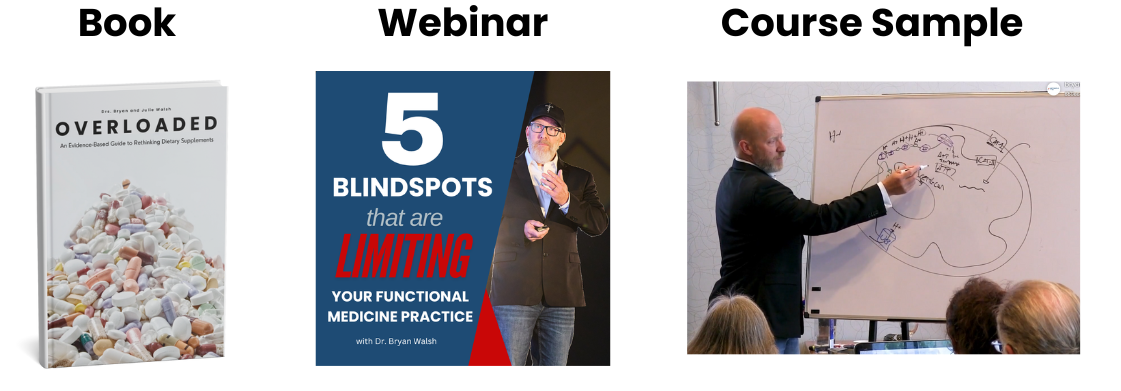Blog
Authors
Drs Bryan & Julie Walsh
Drs Bryan & Julie Walsh have run a private practice and educational company teaching health care practitioners since 2007. Together they combine over 40 years of collective experience in the fitness, nutritional and health industry and combine their unique and synergistic perspectives to bring some of the most relevant, cutting edge, and important information to health care practitioners today.
Get Free Functional Medicine Education
Thank you!
Policy Pages
Join our mailing list
Get updates and special offers right in your mailbox.
Thank you!
Learn the PRAL Score of 30 Common Foods
(Based on Portion Sizes)
And get started evaluating your diet today!
Enter your email address below to subscribe to our mailing list and get the guide free!
Thank you!
Grab our free Reactive Hypoglycemia Playbook
Enter your email address below to subscribe to our mailing list and get the guide free!
Thank you!
See Inside the Program
Fill in your information below and we'll give you access to a free inside look into the entire program.
Thank you!
Get Free Stuff!

Fill in your information below and we'll give you our 100+ page eBook "Overloaded", our one hour "State of the Industry" webinar, and a sneak peek into one of our courses.
